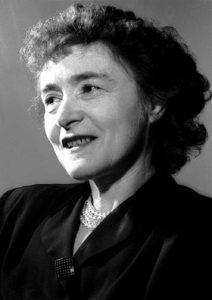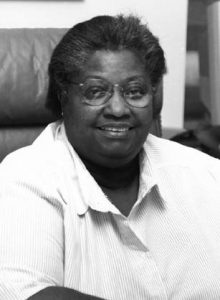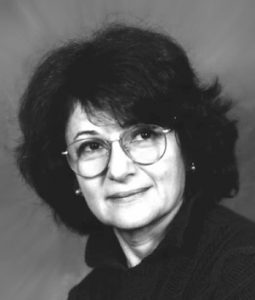
March 22, 2022
March is Women’s History Month, and here at the Fisher Center for Alzheimer’s Research Foundation, we have been celebrating female scientists throughout history, as well as present day women who are advancing medical science for future generations.
As you’ll see in the following article, these women of science and/or medicine have either paved the way for future women by being the first to break into formerly male-dominated fields, or they have risen to the top of their field with discoveries that will continue to move the needle in finding the cause(s) of Alzheimer’s disease.

Born in 1896, Gerty Radnitz’s educational opportunities were extremely limited. Because women’s schools did not offer courses that were integral to medical school entrance exams, Radnitz spent a year cramming and was able to successfully enroll at the age of 18. Eventually, Radnitz, along with her husband, would be the first woman to receive the Nobel Prize for Physiology or Medicine.

Alexa Canady discovered her interest in neurosurgery in the 1970s while enrolled in medical school. Despite those who tried to dissuade her from this career path, she applied and was accepted into Yale-New Haven Hospital as a surgical intern (becoming both the first woman and the first African American in the program). In 1981, Canady became the first African American woman in the United States to become a neurosurgeon, and five years later became the Chief of Neurosurgery at Children’s Hospital of Michigan.

When Dr. Patricia Goldman-Rakic passed at the age of 66 in 2003, she was America’s preeminent neuroscientist. She was the first to explore and describe the structure of the prefrontal cortex, an area of the brain responsible for high level cognitive functioning. Further research led to the discovery that the loss of dopamine in the prefrontal cortex led to memory deficits. Overall, her work with neurotransmitters opened up a deeper understanding of disorders like Alzheimer’s, Parkinson’s, and dementia.
After winning the Nobel Prize in Physiology or Medicine in 2000, Dr. Paul Greengard, who ran the Zachary and Elizabeth M. Fisher Center for Research on Alzheimer’s Disease [The Fisher Center lab] at The Rockefeller University until his death in 2019, established the Pearl Meister Greengard Prize. He and his wife, sculptor Ursula von Rydingsvard, donated his entire Prize winnings to create this fund, named after his mother who died giving birth to him. Since 2004, the Pearl Meister Greengard Prize has been awarded each year to a woman scientist who is making significant contributions in the field of scientific research.
The Fisher Center for Alzheimer’s Research Foundation is proud to raise funds that support scientists in the search for a cure for Alzheimer’s disease. If you would like to learn more about the Foundation, please visit ALZinfo.org.











